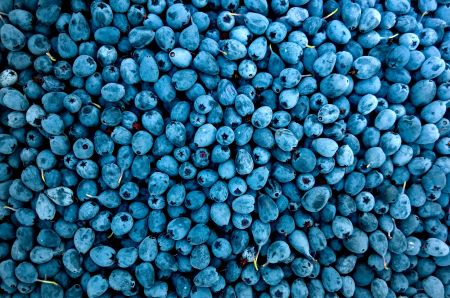Top 8 Nutrition Tips for Improving Low Mood
- The Gut-Brain Connection
- Omega-3 Fatty Acids
- Complex Carbohydrates
- Protein-Rich Foods
- Antioxidant-Rich Foods
- Vitamin D
- B Vitamins
- Hydration
Low mood, often associated with symptoms of sadness, anxiety, and irritability, can significantly impact our overall well-being and quality of life. While various factors contribute to low mood, including psychological and environmental factors, our dietary choices play a substantial role in regulating our emotions. Nutrient-rich foods can support our mental health and alleviate feelings of low mood. Let’s look at the top nutrition tips to help improve your mood and overall emotional well-being.
-
The Gut-Brain Connection
The gut-brain connection is a hot topic in the world of nutrition and mental health. Research has shown that the gut and the brain are intricately linked, and the state of your gut can directly affect your mood. A healthy gut microbiome promotes the production of neurotransmitters like serotonin, which is often referred to as the “feel-good” hormone. To nurture your gut-brain connection, focus on the following dietary guidelines:
a. Probiotics: Incorporate probiotic-rich foods like yogurt, kefir, sauerkraut, and kimchi into your diet. These foods can help maintain a healthy balance of gut bacteria.
b. Fiber: Consume high-fiber foods such as whole grains, legumes, and vegetables. Fiber feeds the beneficial gut bacteria, helping them thrive and support your mental health.
-
Omega-3 Fatty Acids
Omega-3 fatty acids, found in fatty fish, flaxseeds, chia seeds, and walnuts, have been linked to improved mood and reduced symptoms of depression. These healthy fats play a critical role in the structure and function of brain cells, and they can help reduce inflammation, a factor often associated with low mood. Here’s how you can incorporate more omega-3s into your diet:
a. Fatty Fish: Salmon, mackerel, and sardines are excellent sources of omega-3s. Aim to include them in your diet at least twice a week.
b. Plant-Based Sources: If you’re vegetarian or vegan, consider flaxseeds, chia seeds, and walnuts to boost your omega-3 intake.
-
Complex Carbohydrates
Complex carbohydrates, found in whole grains, fruits, and vegetables, can have a positive impact on mood. These foods help regulate blood sugar levels and provide a steady supply of energy to the brain. When your blood sugar remains stable, you’re less likely to experience mood swings. Opt for whole grains like brown rice, quinoa, and whole wheat bread, along with a variety of colorful fruits and vegetables to support your mental well-being.
-
Protein-Rich Foods
Protein is essential for the production of neurotransmitters, such as dopamine and norepinephrine, which can elevate mood and increase alertness. Including adequate protein in your diet can help maintain a balanced emotional state. Lean sources of protein, such as poultry, lean cuts of beef, tofu, beans, and lentils, should be incorporated into your meals.
-
Antioxidant-Rich Foods
Antioxidants are compounds that combat oxidative stress, which can contribute to feelings of low mood. Brightly colored fruits and vegetables, as well as teas and certain spices, are excellent sources of antioxidants. Here are some antioxidant-rich options:
a. Berries: Blueberries, strawberries, and raspberries are packed with antioxidants and can be included in your breakfast or snacks.
b. Green Tea: Sip on green tea, which is rich in catechins, a potent antioxidant.
c. Turmeric: Incorporate this spice into your cooking. Turmeric contains curcumin, a powerful antioxidant with potential mood-boosting properties.

-
Vitamin D
Vitamin D is often called the “sunshine vitamin” because your skin can produce it when exposed to sunlight. Low levels of vitamin D have been associated with an increased risk of depression and low mood. In regions with limited sunlight, obtaining enough vitamin D from dietary sources becomes crucial. You can increase your vitamin D intake through:
a. Fatty Fish: As mentioned earlier, fatty fish like salmon and mackerel are rich in vitamin D.
b. Fortified Foods: Check for vitamin D-fortified products like fortified milk, orange juice, and cereals.
c. Supplements: If you struggle to get enough vitamin D from food and sunlight, consult with a healthcare provider about supplements.
-
B Vitamins
B vitamins, including B6, B9 (folate), and B12, play a vital role in regulating mood. Deficiencies in these vitamins have been linked to mood disorders. To ensure you’re getting enough B vitamins, include the following foods in your diet:
a. Leafy Greens: Spinach and kale are excellent sources of folate.
b. Lean Proteins: Poultry, fish, and lean meats provide vitamin B6 and B12.
c. Legumes: Lentils and chickpeas are rich in various B vitamins.
-
Hydration
Dehydration can lead to fatigue and mood disturbances. It’s essential to stay adequately hydrated throughout the day. Water is the best option for maintaining proper hydration. However, herbal teas and diluted fruit juices can also contribute to your daily fluid intake.

Improving low mood through nutrition is a holistic approach that can complement other therapeutic methods. By making wise dietary choices and focusing on foods that support your mental health, you can positively influence your emotional well-being. Remember that nutrition is just one piece of the puzzle; consulting with a healthcare professional or mental health expert is crucial if you’re experiencing persistent low mood or depression. Incorporating these nutrition tips, alongside exercise and a supportive social network, can help you on your journey to a happier and healthier life.
Read Our Article Using the Consultation Method for Improved Results
